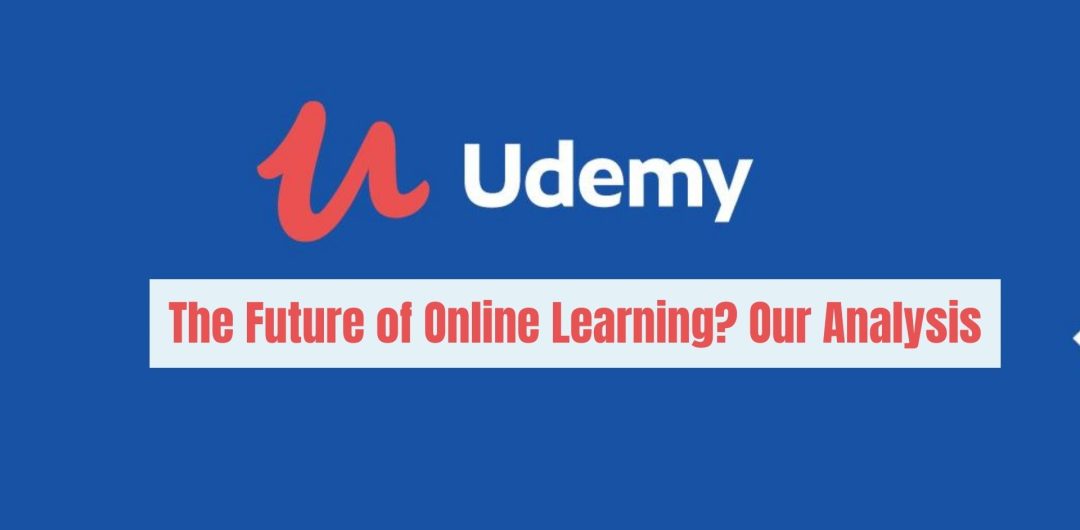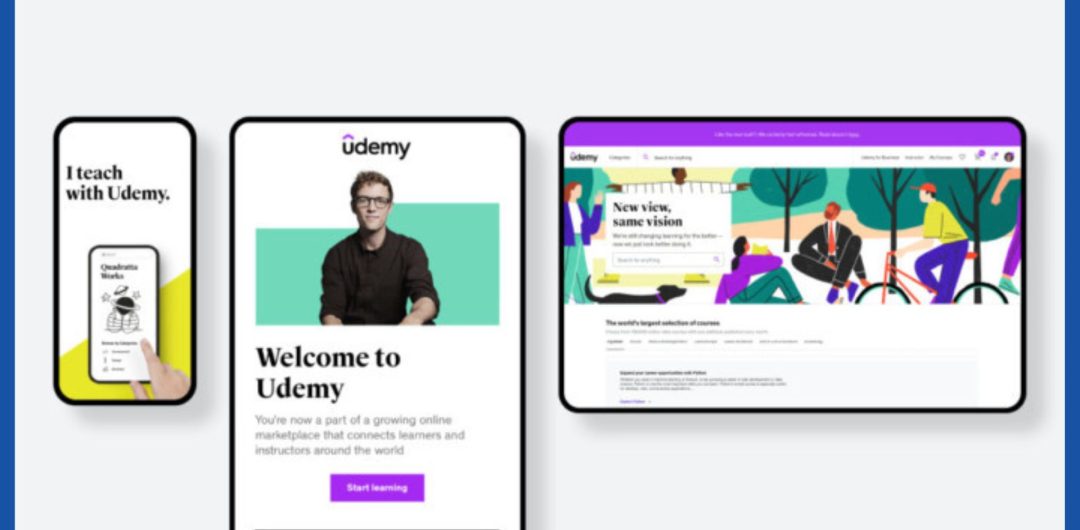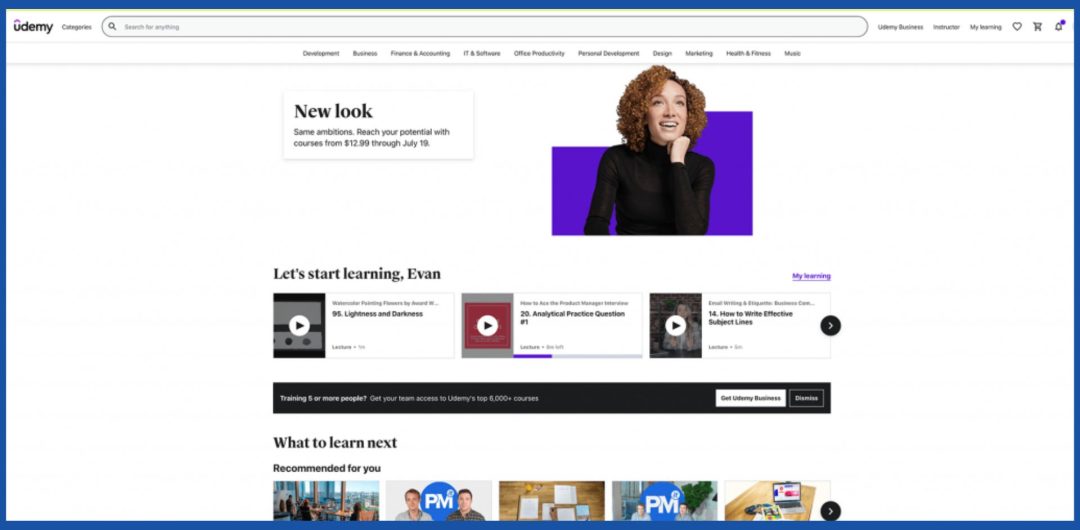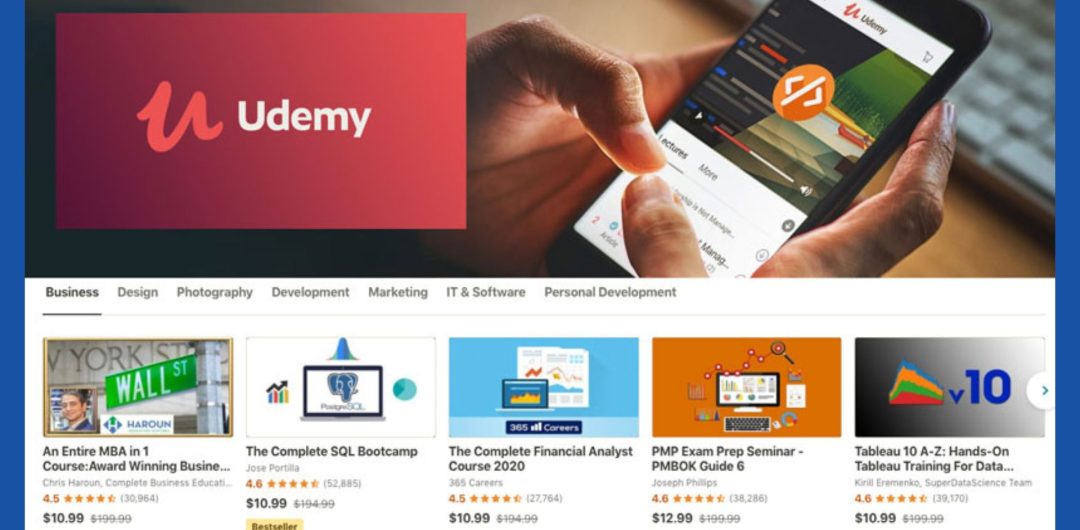
Online learning has been gaining popularity in recent years, with many people seeking to gain knowledge and skills from the comfort of their own homes. Udemy, a leading online learning platform, has emerged as a top choice for those looking to expand their knowledge base or develop new skills.
Udemy offers a vast range of courses, taught by experts in their respective fields, covering subjects ranging from programming and digital marketing to cooking and yoga. With more than 155,000 courses and over 40 million students worldwide, Udemy has established itself as a dominant force in the e-learning industry.
But is Udemy the future of online learning? Our analysis seeks to answer this question by examining the platform’s strengths and weaknesses.
One of the strengths of Udemy is its accessibility. The platform is available globally and offers courses in various languages, making it easy for learners from different parts of the world to access high-quality educational content. Additionally, courses are available on-demand, meaning learners can study at their own pace and on their schedule.
However, Udemy also has its shortcomings. The platform does not offer accredited certificates or degrees, which may be a drawback for those seeking formal qualifications. Additionally, the quality of courses can vary, as anyone can create and sell a course on the platform.
Despite these limitations, Udemy remains a popular choice for learners worldwide. Its diverse range of courses and affordable pricing makes it an attractive option for those seeking to learn new skills. Whether or not Udemy is the future of online learning remains to be seen, but there is no denying that it has already made a significant impact on the e-learning industry.
- A brief explanation of what Udemy is and its history
- Importance of online learning in today's society
- Advantages of Udemy
- Challenges Faced by Udemy
- Analysis of Udemy's Future:
- 1. Increasing competition from other online learning platforms
- 2. Importance of addressing quality control issues and improving transparency
- 3. Potential for expansion into new markets
- 4. Advancements in technology that could enhance the learning experience
- FAQs on Udemy
- What makes Udemy different from other online learning platforms?
- How much does it cost to take courses on Udemy?
- How does Udemy ensure the quality of its courses?
- Can I get a certificate or degree from Udemy?
- How does Udemy compete with other online learning platforms?
- What is the future of online learning, and how does Udemy fit into it?
- Conclusion
A brief explanation of what Udemy is and its history
Udemy is an online learning platform that offers a vast array of courses covering a range of topics, from business and technology to health and fitness. It was founded in 2010 by Eren Bali, Gagan Biyani, and Oktay Caglar, with the mission to democratize education by making it more accessible to people around the world.
Initially, Udemy offered free courses, but the company later shifted to a paid model, allowing instructors to create and sell their courses on the platform. Today, Udemy boasts over 155,000 courses and has over 40 million registered users worldwide.
Over the years, Udemy has grown significantly and has raised over $223 million in funding from investors. The platform has also expanded its offerings to include corporate training solutions, allowing businesses to upskill their employees.
Udemy’s success can be attributed to its user-friendly interface, the quality of its courses, and its affordability. With courses priced as low as $10, Udemy has made it possible for people from all walks of life to access high-quality education.
Overall, Udemy has made a significant impact on the online learning industry, and its future looks promising as more people seek to gain new skills and knowledge through online education.

Importance of online learning in today’s society
Online learning has become increasingly important in today’s society for various reasons. Here are some of the key reasons why online learning is so significant:
1. Accessibility
Online learning has made education more accessible to people from all walks of life. Anyone with an internet connection can access online courses from anywhere in the world. This has made education more inclusive and has opened up opportunities for people who may not have had access to traditional educational institutions.
2. Flexibility
Online learning offers flexibility in terms of scheduling and pacing. Learners can study at their own pace and on their schedule, which allows them to balance their studies with work, family, or other commitments.
3. Cost-effective
Online learning is often more affordable than traditional forms of education. Many online courses are either free or cost significantly less than attending a brick-and-mortar institution. This makes education more accessible to those who may not be able to afford the high costs associated with traditional education.
4. Skill development
Online learning offers opportunities for skill development and upskilling. With the rapid pace of technological advancement, it is essential to continuously update skills and knowledge to stay competitive in the job market. Online learning allows learners to acquire new skills and knowledge in their field of interest or expertise.
5. Global reach
Online learning has a global reach and offers the opportunity for learners to connect with instructors and students from around the world. This allows learners to gain a diverse perspective and learn from different cultural contexts.
Online learning is becoming increasingly important in today’s society. It offers accessibility, flexibility, affordability, skill development, and a global reach, making it a crucial tool for personal and professional growth in the 21st century.
Advantages of Udemy
Udemy is one of the most popular online learning platforms, offering a wide range of courses on various subjects. Here are some of the advantages of using Udemy:

1. Wide range of courses
Udemy offers a vast selection of courses, with over 155,000 courses covering various topics. This means that learners can find courses on almost any subject they are interested in.
2. Flexibility
Courses on Udemy are available on-demand, meaning learners can study at their own pace and on their schedule. This makes it easier for learners to fit their studies around their work or other commitments.
3. Affordability
Udemy courses are often more affordable than traditional forms of education. Courses are priced individually, with prices starting as low as $10. This makes it easier for learners to access high-quality education without breaking the bank.
4. Quality courses
Udemy has a rigorous course quality review process, ensuring that the courses offered on the platform are of high quality. This means that learners can trust that the courses they are taking are taught by experts in their respective fields.
5. Global community
Udemy has a global community of learners and instructors, which allows for diverse perspectives and cross-cultural learning. Learners can connect with instructors and students from around the world, making it easier to expand their network and gain a broader perspective on various topics.
6. Self-paced learning
Udemy courses allow learners to study at their own pace, which is an advantage for those who have different learning styles. Some learners may require more time to understand a topic, while others may learn more quickly. Udemy’s self-paced learning model allows learners to work at a pace that suits them.
Challenges Faced by Udemy
While Udemy has many advantages, it also faces several challenges, including:
1. Quality control
Although Udemy has a course quality review process, the platform still faces challenges in maintaining the quality of its courses. Since anyone can create and sell a course on Udemy, there may be lower-quality courses that slip through the review process.
2. Instructor reliability
Another challenge faced by Udemy is ensuring that instructors are reliable and responsive. Some instructors may not respond to learner inquiries promptly, which can lead to frustration among learners.
3. Competition
Udemy faces stiff competition from other online learning platforms, such as Coursera, edX, and Skillshare. These platforms offer similar courses and features, making it harder for Udemy to differentiate itself in the market.
4. Inconsistent pricing
Udemy courses are priced individually, and instructors have control over the pricing of their courses. This can lead to inconsistent pricing across courses, with some courses priced much higher or lower than others.
5. No accreditation
Udemy courses are not accredited, which means that learners cannot earn academic credit for completing a course. While this may not be an issue for those seeking to learn new skills or knowledge for personal development, it may be a disadvantage for those seeking to advance their careers or continue their education.
6. Limited interaction
While Udemy offers a global community of learners and instructors, the platform’s self-paced learning model means that there is limited interaction between learners and instructors. This can be a disadvantage for those who prefer more interactive and collaborative learning environments.
Analysis of Udemy’s Future:
1. Increasing competition from other online learning platforms
One of the major challenges for Udemy in the future will be the increasing competition from other online learning platforms. With the rise of Coursera, edX, Skillshare, and other similar platforms, Udemy will need to differentiate itself by offering unique courses and features to stay ahead of the competition.

2. Importance of addressing quality control issues and improving transparency
To maintain its reputation and credibility as a leading online learning platform, Udemy needs to address quality control issues and improve transparency. This will involve tightening its course review process to ensure that only high-quality courses are offered on the platform. Additionally, Udemy could improve transparency by providing more information about the qualifications and expertise of its instructors.
3. Potential for expansion into new markets
Udemy has the potential to expand into new markets, such as corporate training, vocational education, and continuing education for professionals. By offering courses and certifications that cater to these markets, Udemy could tap into a new customer base and increase its revenue streams.
4. Advancements in technology that could enhance the learning experience
Advancements in technology, such as artificial intelligence and virtual reality, could enhance the learning experience on Udemy. For example, Udemy could use AI to personalize the learning experience for each student, offering course recommendations based on their interests and learning style. Additionally, Udemy could incorporate VR technology to create immersive learning environments that simulate real-world scenarios.
FAQs on Udemy
-
What makes Udemy different from other online learning platforms?
One of the things that set Udemy apart from other online learning platforms is its focus on self-paced learning. Learners can take courses at their own pace and on their schedule, which makes it ideal for those who are busy or have other commitments.
-
How much does it cost to take courses on Udemy?
The cost of courses on Udemy varies depending on the course and the instructor. Some courses are free, while others may cost hundreds of dollars. However, most courses are priced between $10 and $50, which makes them affordable for most learners.
-
How does Udemy ensure the quality of its courses?
Udemy has a course review process that is designed to ensure the quality of the courses offered on the platform. The review process includes a check for accuracy, completeness, and relevance of the content, as well as the instructor’s qualifications and expertise.
-
Can I get a certificate or degree from Udemy?
Udemy offers certificates of completion for some courses, but it does not offer degrees. The certificates are issued by Udemy and can be used to demonstrate completion of a course, but they are not accredited by any educational institution.
-
How does Udemy compete with other online learning platforms?
Udemy competes with other online learning platforms by offering a wide range of courses, flexible pricing, and self-paced learning options. It also differentiates itself by focusing on practical skills and real-world applications, rather than just academic theory.
-
What is the future of online learning, and how does Udemy fit into it?
The future of online learning is bright, and Udemy is well-positioned to play a major role in it. As more and more learners seek flexible and affordable education options, Udemy’s self-paced learning model and practical focus make it an attractive choice for learners around the world.
Conclusion
In summary, Udemy has several advantages, including a wide range of courses, affordable pricing, and self-paced learning. However, it also faces challenges, such as maintaining course quality, instructor reliability, and competition from other online learning platforms.
The importance of online learning is increasing in today’s society, and it is likely to continue to do so in the future. Online learning offers the flexibility and convenience that traditional learning does not, allowing learners to study at their own pace and from anywhere in the world.
Udemy has established itself as a leading online learning platform, and its potential in the industry is promising. By addressing its challenges and leveraging advancements in technology, Udemy could continue to grow and innovate, offering learners around the world access to high-quality education and skills training. However, it will need to continue to adapt to changing market conditions and user needs to remain competitive in the rapidly-evolving online learning landscape.
